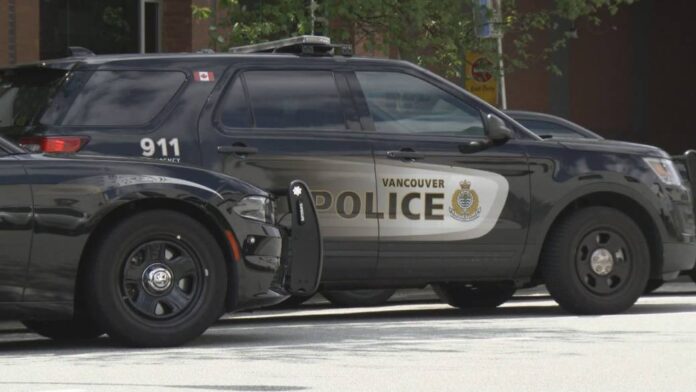
The B.C. government says police have no power to engage in an arbitrary vehicle or street check as part of enforcing the provincial ban on travelling across health regions amid the ongoing COVID-19 pandemic.
Public Safety Minister Mike Farnworth outlined the province’s enforcement measures Friday to restrict non-essential travel across B.C.
If the police have reasonable grounds to believe that a person has travelled for a non-essential purpose, they can direct the traveller to turn around and leave the region, Farnworth explained.
READ MORE: B.C. government splitting province up into three zones to enforce COVID travel restrictions
The RCMP will administer the road checks and can ask for a driver’s name, address and driver’s license. In order to enforce the order, they can ask for secondary identification confirming an address and ask for the purpose of travel. A driver is not required to provide documentation to support the travel claim.
At the discretion of the police, breaking the law could lead to a $575 fine.
“These restrictions on non-essential travel are saving lives, it’s in the best interest of all British Columbians to follow them, and I know most are given the significant drop we’ve seen in out of- region travel,” Farnworth said.
“But it is also important that we get enforcement right, and consider concerns raised by the public and incorporate the feedback received from racialized communities. I want to be clear that the intent of this order is not punishment, but rather education around non-essential travel prevention to protect us all from the spread of COVID- 19.”
He said pedestrians will not be stopped on the street and the enforcement measures will only be in effect at the road check site.
The road checks will be set up near ferry terminals and on highway corridors that connect different regions of the province and could start as early as Friday.
The road checks may be put in place at any time until the order is lifted at 12:01 a.m. on May 25, 2021.
However, Farnworth said there will be many signs indicating a road check ahead and drivers will be given “plenty of notice” and the opportunity to turn around before reaching a road check.
READ MORE: What is essential travel in B.C. under the new COVID-19 travel restrictions?
The RCMP will use a dedicated team to manage and enforce road check locations, Farnworth said, adding it will fall under E Division’s discretion as to where these checks will take place.
“They will have to put in a place that is a safe area for both the police and the public and also allow for vehicles to be turned around if necessary,” Farnworth added.
During the first weekend of the new travel restrictions, BC Ferries vehicle traffic was down more than 25 per cent fleet-wide, and passenger traffic down more than 30 per cent, compared to the weekend before, the government said.
BC Parks has reported more than 5,000 cancellations in the past few weeks.
The province has been sectioned into three zones: Lower Mainland and Fraser Valley (Fraser Health and Coastal Health regions), Vancouver Island (Island Health region) and Northern/Interior (Interior Health and Northern Health regions).
On Thursday, provincial health officer Dr. Bonnie Henry urged Metro Vancouver residents not to travel to smaller communities, such as the Sunshine Coast or Whistler, but that is not against the travel restrictions.
Farnworth said they are asking people not to travel to those communities and if further enforcement measures are needed to prevent this, that is something they would look at doing.
The president of the National Police Federation, Brian Sauvé, said last week that his members were concerned about the safety and “ongoing lack of clarity” around the province’s proposed police enforcement.
In a statement Friday, Sauvé said they are pleased that this order addresses many of their concerns “and is significantly reduced from the minister’s initial enforcement-centered proposal, and is focused on information and encouraging people not to travel between regions.”
As of Friday, more than 38 per cent of British Columbians have received their first dose of a COVID-19 vaccine.
Source: Global News

